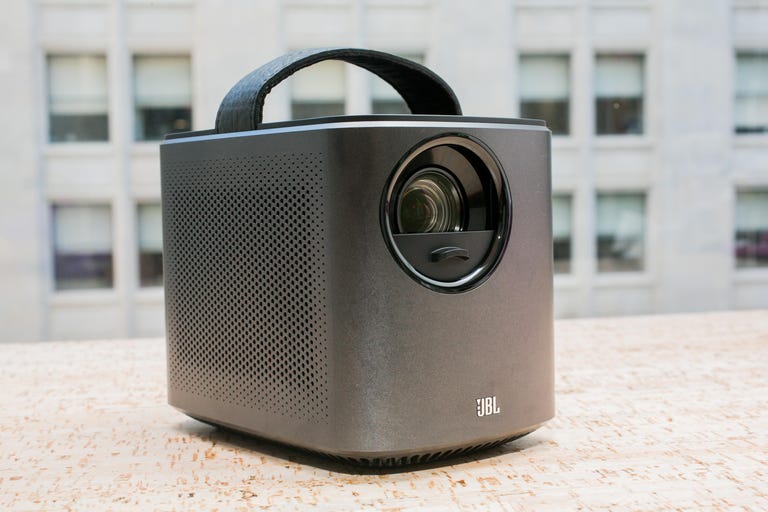 Why You Can Trust CNET
Why You Can Trust CNET Nebula Mars Portable Cinema review: Portable projector shoots for the moon, almost gets there
This versatile Android-powered, lunch box-size projector can last up to 3 hours away from an outlet and is a lot of fun to use despite some software issues.
Anker is known for bargain-priced battery packs for phones, but it's been branching out lately with a host of other gear, including this $600 Nebula Mars DLP portable projector.
Not quite as small as a "pico projector," I like to refer to it as a home-theater-in-a-lunch-box. On top of being able to project an image up to around 150 inches, the Nebula has dual JBL speakers built into its chassis as well as a rechargeable battery that delivers up 3 hours of projection time.
Those 10-watt speakers sound much better -- and play much louder -- than the tiny speaker built into your typical pico projector. It's a nice step forward for integrated audio in a projector, and that 3-hour battery life is about an hour better than most pico projectors offer.
The Good
The Bad
The Bottom Line
The Nebula Mars is the size of a small lunch box.
While you can project a 150-inch image you're going to get a much better picture projecting in the 55- to 75-inch range. Rated at 3,000 lumens, the projector is fairly bright, particularly for a projector of its size, but as usual you'll want to use it in as dark a situation as possible to minimize image washout.
The 4-pound (1.82 kg) projector has a native resolution of 1,280x800 pixels or 800p and the images I projected were fairly sharp, but not as good as real HD. There was little bit of softness that made you feel like you were watching something in between a DVD and a Blu-ray, especially at larger sizes.
What's cool about the projector is that there are a number of ways to get video to run through it. It's powered by an Android-based operating system and has built-in Wi-Fi, so you can stream content right from the projector via apps like Netflix and
YouTube
(more adventurous users can sideload additional Android apps that aren't in the Nebula's download library).
Another option is to plug a video source, such as an Amazon Fire TV Stick , Roku, Google Chromecast or Apple TV , into the HDMI port and stream content that way. You can also play a video file from a USB thumbdrive.
Connectivity options include HDMI, USB 3.0, Wi-Fi and Bluetooth.
Overall, the hardware seems more polished than the software. The interface is fine -- and the included remote works pretty well, even if you have to be behind the projector to use it due to the IR's placement -- but the software seems like it could still use some work. By that I mean it's definitely in a beta state.
I had some issues where the Wi-Fi didn't see certain networks that appeared on my phone and laptop, and the picture was softer using the internal Netflix app than when I watched with an external device. There are mirroring options for Android and iOS devices (mirroring is where you wirelessly "cast" what's on your phone screen to the projector's screen), but the connection seemed a little laggy.
Ultimately, for video streaming, I had better luck using a Fire TV stick (you can power the stick by plugging it into the projector's USB port). And I got the best video quality by running a video file directly from a USB stick or plugging my iPhone into the HDMI port with a Lightning-to-HDMI adapter cable and streaming video through a wired connection.
The little software hiccups aren't deal breakers -- and for the most part the projector works well -- but it's still a work in progress. The good news is the software is upgradable, and I expect to see some tweaks in the future that should make Nebula Mars even better. As it stands it's a little expensive at $600 (I'd like to see it closer to $500), but I think most people will be pretty pleased with what it's capable of and how easy it is to set up and use.
The included remote.


